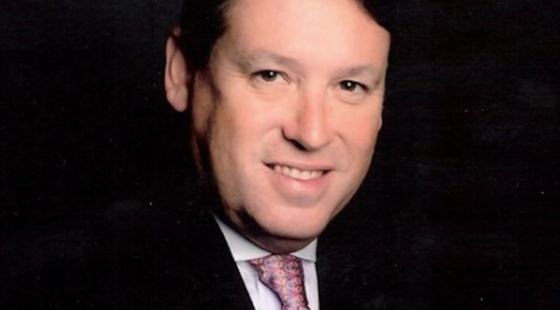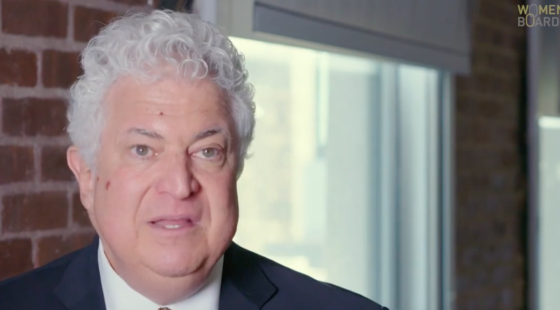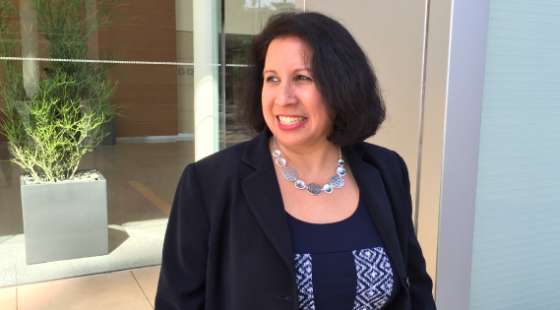
LIANA O’DROBINAK
CEO, Bay Consulting Partners
Member of Audit, Executive, Nominating, & Legal Compliance Committees, Eagle Family of Funds (NASDAQ: HRCVX, EGEAX, HRSCX, HMCAX, HAGAX, HRCPX, EISAX, ETAFX, MSJXX, EGBAX)
Former President/CEO/Board Member/Founder, Acclaris, Inc.
Liana’s keys to success:
- Ask questions and do your due diligence before joining the board.
- Learn the strengths of the other board members so that it becomes clearer what your role is and where you can be the thought leader.
- Ask management and the chair for feedback if your board doesn’t do formal feedback.
How did your journey to the boardroom as a corporate director begin?
My career started as a financial auditor for a Big 8 firm. Within 5 years of finishing college, I found myself making presentations to audit committees and boards of directors of public and private companies. Although we were not permitted to sit on for profit boards due to independence concerns, we were encouraged to take leadership roles on not-for-profit boards. After 25 years of increasingly complex interactions consulting boards of directors in strategy, internal controls and enterprise risk, it was natural for me to consider board service as my next step.
How did you get connected to your first board seat?
I have served on not-for-profit, private and public company boards of varying sizes. Every single one of them came from my existing network. As an example, I was considered for my current board role when my mentor from my early days in public accounting was facing mandatory retirement age and he thought of me, as he has many times in my career, to take over the position of Audit Committee Chair.
What steps did you take to prepare for the board interview process that benefited you most?
I took several steps to prepare for the board interview process: First, I read all the material I could find on the organization. Second, I studied the backgrounds of the people I would be meeting with. Third and finally, I looked through my own resume to find areas of strength so that I would be prepared to share with them where I might be able to add value.
What characteristic or behavior did you exhibit that you believe was a critical factor in your successful candidacy for your first board appointment?
My mentor had worked with me on many projects in the past. He had seen me interact many times in the boardroom both as a consultant and later as part of the board of a not-for-profit health system that we served on together. Board members must exhibit inquisitiveness and openness with management and each other, but it’s also important to have respect for the line between management and the board, and respect for each other. A lot of people have resumes with the necessary skills set to serve on a board, but having someone who can vouch for your performance in the boardroom and how you carry yourself is hugely beneficial. I think for me it was my previous experience and my sponsor’s ability to vouch that I would be a diligent and respectful member of the board.
What has surprised you about the reality of board service versus the expectations that you had coming in – in a positive or maybe not so positive way?
What has surprised me is that board members are people, too. I always imagined when I was working with board members with huge resumes that they knew so much and it was intimidating to be on the board with them. In reality, everyone always has questions, and everyone has strengths and weakness in their backgrounds and in how they stay up on trends and changes. Once I got comfortable that I wasn’t supposed to know everything, it helped me add value and gave me the confidence to ask questions. I respect my fellow board members when they ask a question I didn’t think of. We support each other, and no one would ever consider anything a dumb question. This part was comforting to me.
What is your favorite leadership quote that has inspired you on this journey? – this could be your own personal mantra!
“In the end everyone knows everything”.
This mantra has helped me make so many decisions personally and professionally, and I stick to it. I interpret it to mean that at the very end of everything, whatever decision you make will be known. Depending on how you look at it, maybe it means if you leave your current job in 2 years, the person who takes over for you will see the mistakes you made or corners you cut. Or maybe it means at the end of your life or your career. For me, the meaning doesn’t matter as much as how this saying impacts your daily decision making. If you’re not sure what to do on something, decisions are a lot clearer when you ask yourself, “What would happen if my decision comes out 1 year from now? Or 5 or 10?” For me, it’s always helped me choose the high road, and usually those are decisions I haven’t regretted. Sometimes it’s easier to take the shortcut, but the harder, higher road usually bears more results in the longer term.
Liana O’Drobinak is a forward thinking executive, qualified as a financial expert, with proven skills in developing and leading complex, global business growth both organically and through acquisitions in entrepreneurial and corporate environments. She has launched and cultivated five successful business ventures throughout her career. Liana’s business acumen includes corporate governance, compliance and auditing, enterprise risk management, strategic planning, market analysis, P&L management, operational transformation, business development, capital fundraising, accounting, “right shore” and offshore outsourcing, technology, sales leadership, and professional mentoring. She is a nationally recognized Certified Public Accountant and Certified Internal Auditor, a naturalized US citizen, born in Cuba, and fluent in Spanish. Liana has worked in or supervised teams in over a dozen countries on 4 continents.
Views From The Boardroom is an exclusive series from Women In The Boardroom, where corporate board directors share their experience, insight and wisdom and their view from the boardroom. Corporate board directors interested in participating should email bdust@womenintheboardroom.com.
The opinions and experiences expressed by the interviewees do not necessarily reflect those of Women in the Boardroom.






